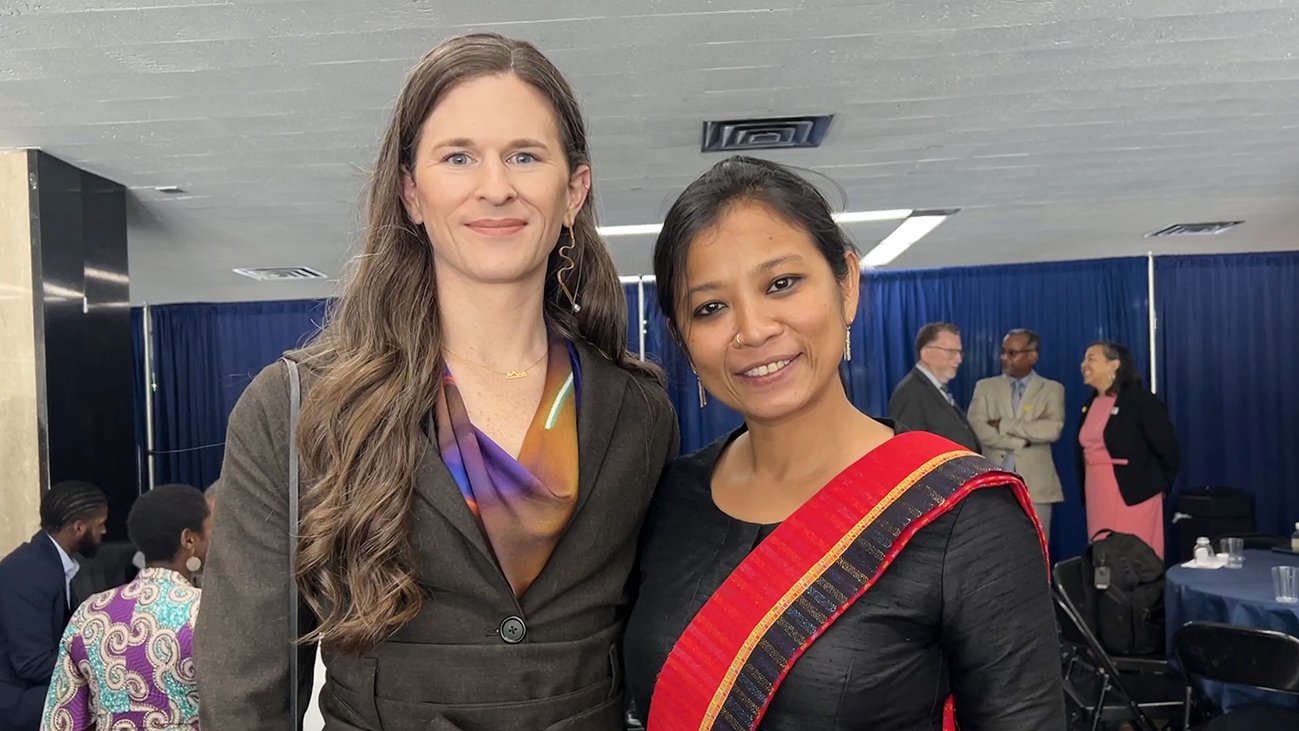Building a truly anti-racist world is a universal journey for all of us.
“If we are to truly build an anti-racist world… it will take all of us,” said Desirée Cormier Smith, Special Representative for Racial Equity and Justice during the inaugural Global Anti-Racism Champions Awards. “The work you do to promote equality, defend human rights, and break down racial barriers and stigmas make your countries more peaceful, more prosperous, and more democratic, and that is good for all of us.”
Her words echoed what (Un)Known Project co-founder Hannah Drake and I often talk about with community members as we seek to unearth and honor the names and stories of Black enslaved people. Supporting racial healing and reconciliation – and peace within our communities - is an intergenerational and universal journey. Although our roles may be different, all of us have roles to play. Some might be on the frontlines as the face of a movement, or others may be in the background. Our roles may be as co-conspirators or holding people in your family, your ancestors or group of friends accountable.
The past few years have revealed the many ways that racism is entrenched in our country and beyond, and where people may be experiencing its impact. As we saw in research and pieces by publications including Los Angeles Times, remote and hybrid work meant that many Black people and people of color faced less racism and discrimination in their day-to-day lives. The Future Forum’s Remote Employee Experience Index reported that, “Only 3% of Black knowledge workers want to return to full-time co-located work (vs. 21% of white knowledge workers in the U.S.)… Explained, in part, by the fact that flexible work has reduced the need for ‘code switching’ among Black knowledge workers, reduced certain instances of microaggressions and discrimination, and improved Black employees’ ability to ‘bounce back’ from incidents.”
The awards ceremony hosted by Secretary of State Antony J. Blinken called attention to the need for anti-racist work, particularly an examination of policies and mindsets across the public and private realms of our lives. “Racism and discrimination make our world less stable, less safe, and less prosperous,” said the event host. A written program featured a 2021 quote by the Secretary stating, racism “fosters polarization and distrust. And it robs democracies of the strength, the innovation, the creativity that can be drawn from diverse and inclusive communities and workplaces.”
Looking at communities across the globe as they fight back against racism, xenophobia and violations of human rights, we can see progress. From convening leaders from the western hemisphere through Cities Summit of the Americas (where I first met Special Representative Cormier Smith) to the creation of the International African American Museum in South Carolina. Learning about the Global Anti-Racist Awardees -- Kari Guajajara, an Indigenous leader of the Brazilian Amazon, Oswaldo Bilboa Lobatón, an Afro-Peruvian activist, and Saadia Mosbah, a Tunisian activist fighting racial discrimination and prejudice – was an inspiring and energizing experience.
Rani Yan Yan, award recipient and Indigenous human rights defender from Bangladesh, asserted that “the global scourge of racism and xenophobia cannot be eradicated instantly, neither can we hope for a just world in a given number of years. This endeavor is a continuous work in progress.”
Josh Miller and Rani Yan Yan
Like Yan Yan noted, our work continues across generations. Each day brings forward new information about the past to inform our future. Earlier this year, Drake and I toured plantations (enslaved labor farms) and cemeteries with unmarked graves containing the bodies of over one hundred enslaved people. At the plantation, a discovery had been made about the grounds within the past 48-hours. Similarly, as construction projects take place throughout the United States, like in Maryland, unmarked cemeteries are being exhumed. This continuous unearthing of history – which can provide new ways to understand it - is part of the reason we launched the (Un)Known Project Trail website, as a way to crowd-source the history of enslavement, including from the archives held by the descendants of enslavers.
It is encouraging to be see that globally - from Brazil to Bangladesh, Denver to the banks of the Ohio River in Kentucky - people are working diligently to right injustices. The ceremony was a reminder that we are not doing this work alone, and I look forward to learning from the awardees each year. To close out the program, Special Representative Cormier Smith invoked the great Fannie Lou Hamer, saying, “Nobody’s free until everybody’s free.”




